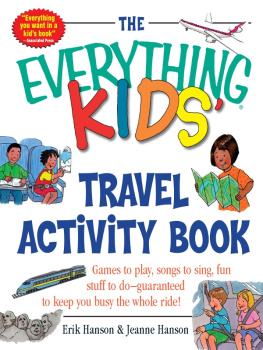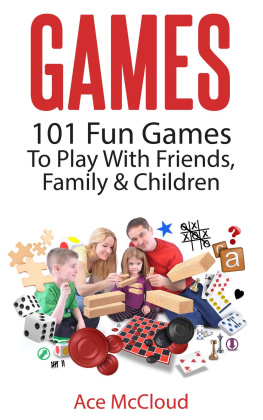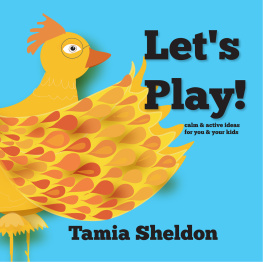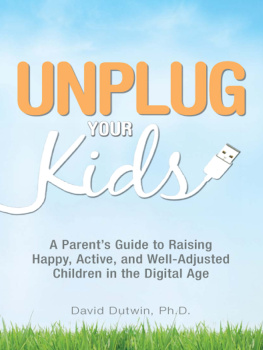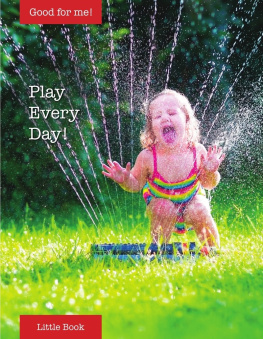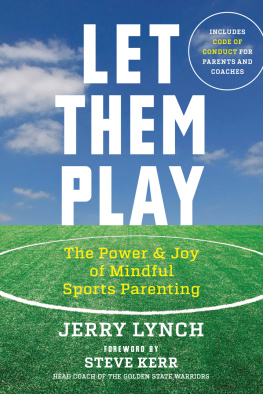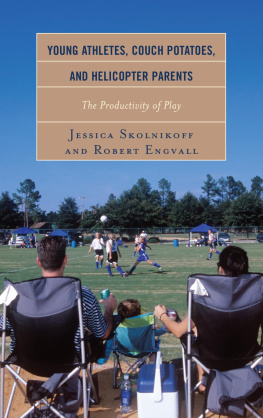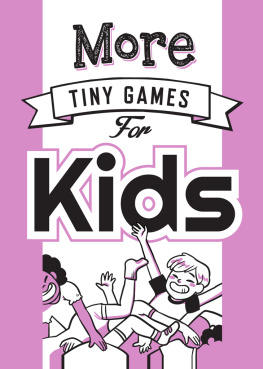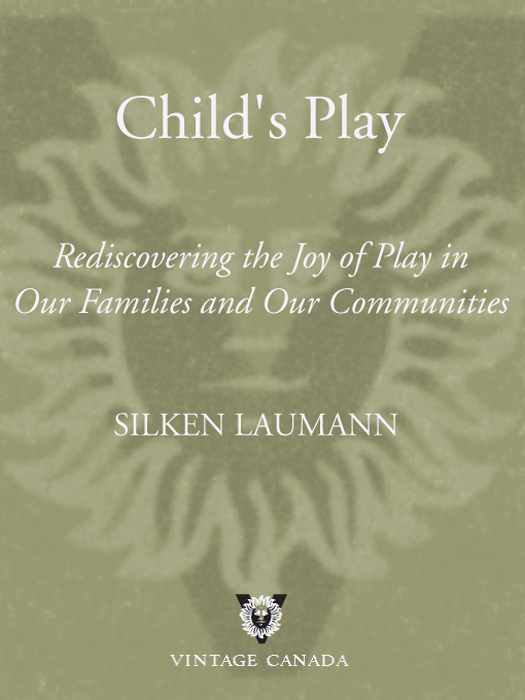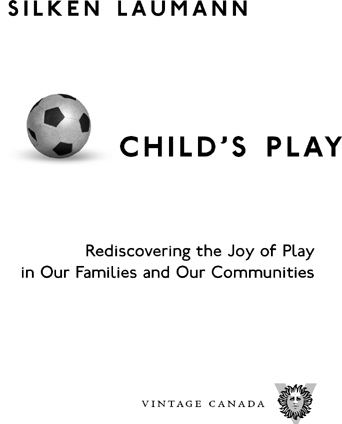Praise for
childs play

Childs Play is an inspirational, practical book that every parent should read. Of course, we should expect nothing less from Silken Laumann.
Russ Kisby, former president of ParticipACTION
Laumanns book is a practical approach about encouraging activity and unstructured play in almost any community. Her flashbacks to her childhood days of free play and the value of these experiences, even to a woman who would later become a competitive athlete, not only make sense but make one take a second look.
Urbanmoms.ca
Our Olympians are powerful role models for youth, and in Childs Play Silken Laumann has eloquently reminded all of us of the power of sport and play to transform the lives of our children. I share Silkens vision and believe that the human legacy of healthy, active and inspired kids is the best legacy we can have.
John Furlong, Chief Executive Officer, Vancouver
Organizing Committee for the 2010 Olympic
and Paralympic Winter Games
For my children:
Sweet William, You see the truth in the world and help us all see more clearly.
Kate,
You are like a brilliant firework, spreading a million bits of light into every corner of your world.
I love you both, beyond words
Be the change you want to see in the world.
M AHATMA G ANDHI
THE DREAM
Not long ago, on a damp, fall evening, my children, Kate and William, and I were taking our thirteen-year-old golden retriever, Banner, on a quick lap around the block before dinner. As I neared the dead-end road by my neighbourhood park, I heard the distinctive thwack of a hockey stick on asphalt. Slam went the stick, whack went the ballthe sound was rhythmic and constant as my young neighbour Mark slapped his bright orange hockey puck into the net over and over again. A car came up behind us, and Mark glided over to pick up the net so the car could pass. He moved the net effortlessly back again and resumed his play, oblivious to my watching eyes.
Hearing that sound of stick on pavement transported me back to the noisy streets of my childhood. On the roads I grew up on, there was always a group of kids playing street shinny and screaming, Pass, pass, pass!
Unlike many other Canadians Ive met, hockey wasnt my passionI loved capture-the-flag. In my neighbourhood we played this game almost obsessively. The objective, as the name implies, was to capture the other teams marker flag. But if you were caught on the other teams territory, you were frozen and had to wait to be rescued by one of your teammates. I would call, Im frozen, Im frozen! at the top of my lungs, hand stretched out, craning and leaning until someone on my team managed to sprint across enemy lines to release me. We would play non-stop until a parent finally shouted, Dinner!
Kids used to live outside. Adventure was a central part of most days, found in the form of a scavenger hunt down a path near home, a trip to the neighbourhood Macs Milk, a meeting of friends on the first snowy day to sneak our toboggans onto the exhilaratingly steep slopes of the Mississauga golf course.
I must have been staring at Mark for a while, lost in thought, because he eventually looked up at me curiously. I smiled and move on. The streets my children and I walk resemble the ones I grew up onsnug houses, big old trees and tons of space for adventuresbut there is one critical difference: the streets today are silent. Mark was the only kid I saw that evening. The playground we dodged through was empty, and so were the schoolyard and all the driveways we passed. And it was so quiet; there was a notable absence of boisterous shouting and gleeful laughter.
I miss these children who make too much noise, whose fluorescent orange hockey balls get too close to my car window. I miss their energy, their smiles, and I miss the community these kids help create. I remember the neighbourhoods of my childhood and cant help but compare them to my neighbourhood now. Those streets and parks and play spaces were ours.
Children have disappeared from our streets, seemingly overnight. Some are inside their homes, where television, the computer and video games entertain them for hours on end. Others stay in after-school care until their busy parents return from work, or are shuttled to prearranged lessons. In a busy world, where parents are under an almost unbearable pressure to balance work, family and their own health, quality family time is often snatched in the minivan on the way to hockey practice, or in the few moments before bedtime.
Even a decade ago, kids still played in the parks and streets of their community after school. They met with friends and learned to skip in the driveways; their mom or dad might have come outside for a quick game of soccer or basketball. While the kids played, parents grabbed a piece of sanity and that necessary half-hour to prepare dinner. My mom made dinner in peace while the three of us kids played outside.
Play is the lifeblood of childhoodit brings children joy, it nurtures and excites their creativity, it builds social skills and it strengthens their bodies.
People say the world has changed: our streets arent safe, kids cant go outside alone and parents dont have the time to watch their kids play in a neighbourhood park. I try to accept this logic and yet I cant help but believe that the way we are living today isnt really working. We are denying children the best and most vital part of childhood: play. Play is the lifeblood of childhoodit brings children joy, it nurtures and excites their creativity, it builds social skills and it strengthens their bodies. Play is the very best part of being a kid. I cant accept that something so good for their hearts and minds and bodies, something so good for us as parents, has been lost.
Children may have more toys and more treats and fancier bicycles, but they have lost much of the freedom that made our childhoods so joyful. A good friend of mine grew up in Rycroft, a tiny northern Alberta village. His single mom supported her four children by cutting hair in the daytime and slinging beer at night. There wasnt much time for cuddles, and yet Paul remembers his childhood as happy. Why? He had the love of a parent and the luxury of spending all his free time outdoors, riding his bicycle, finding friends and playing kick-the-can or intense games of road hockey.
I began to ask why things have changed and how things have changed, why we seem to be okay or at least resigned to this change and whether or not I was alone in my desire to reconnect with the past. I started to dream of my neighbourhood as a place where my kids could meet in the park, where they could roam the streets with their buddies on bikes or skateboards or scooters, where there would be a championship road-hockey game in my driveway.


